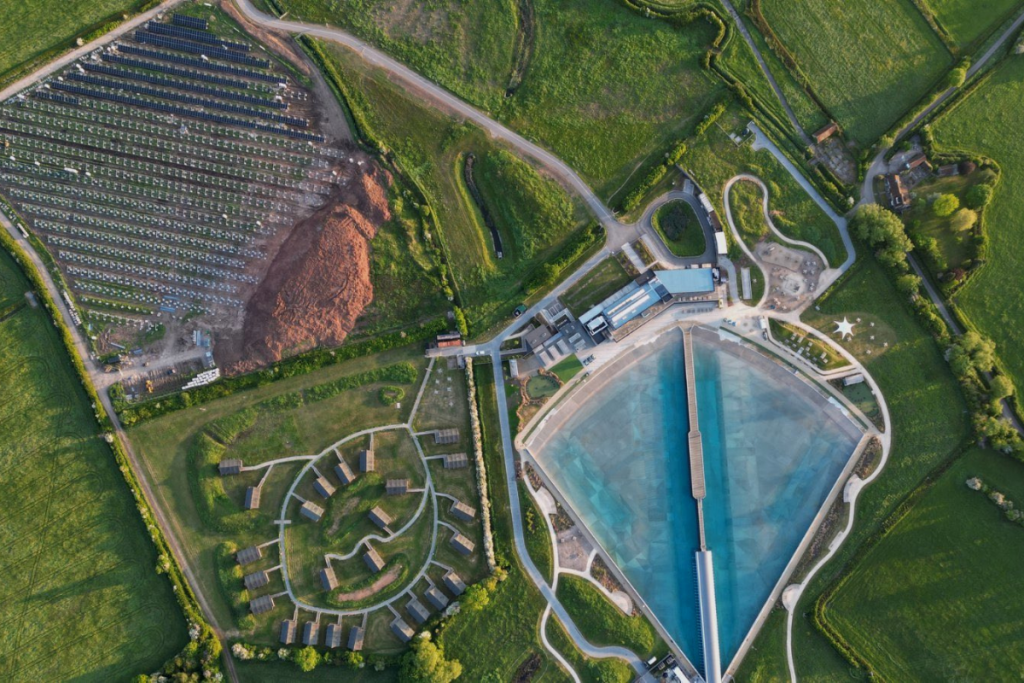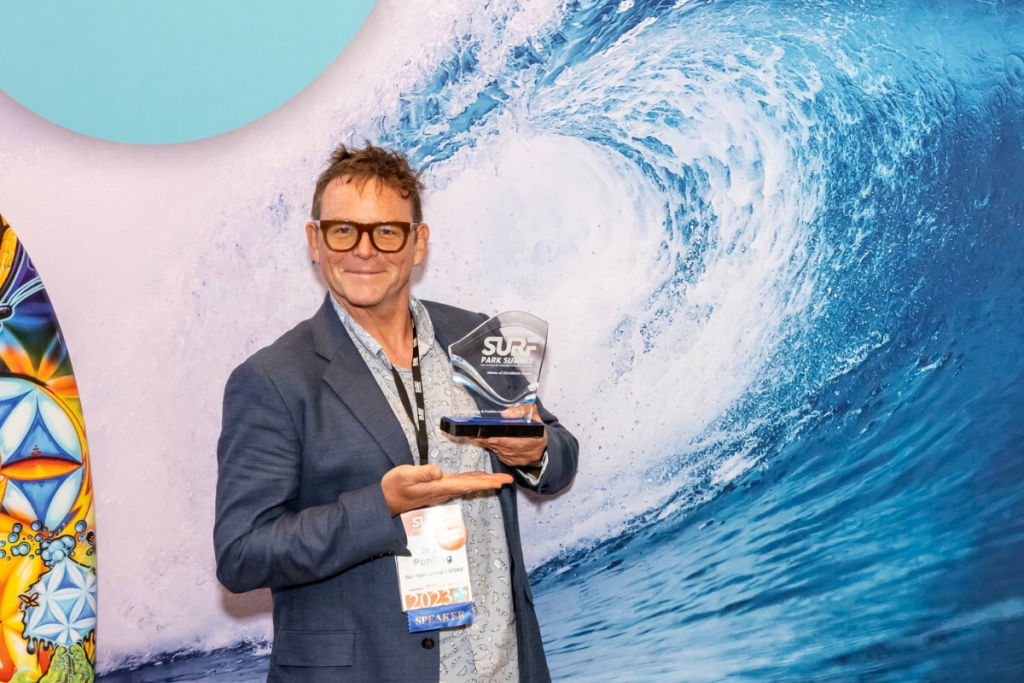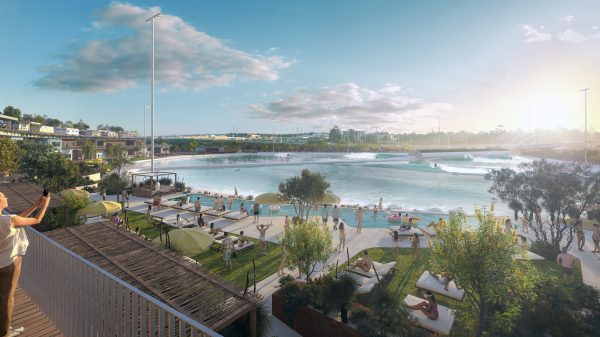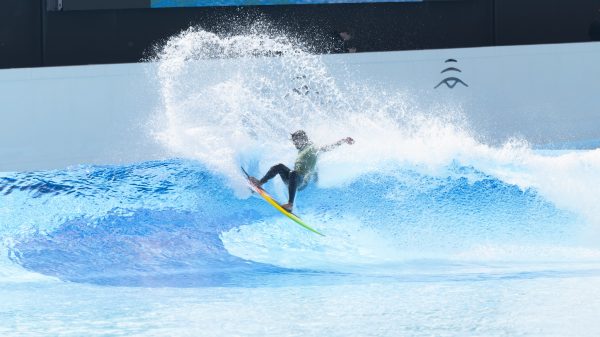From WavePoolMag:
Written by Neil Armstrong aka Moonwalker
Owning and running an environmentally aware business that leaves as light of a footprint as possible is a tricky task for any business, doubly so with wave pools. Water and electricity usage and practices need to be constantly scrutinised and updated; for both economic reasons, and green principles.
To streamline the path to good environmental governance, which can assist wave pools’ bottom line, there’s the STOKE (Sustainable Tourism and Outdoors Kit for Evaluation) certification. Founded in 2013, STOKE is a non-profit organization housed in San Diego State University’s Center for Surf Research that offers sustainability standards developed specifically for surf and mountain destinations and surf parks.
As to why? The idea was to fill a gap in the sustainability certification space. “There was nothing that catered specifically to surf and snow destinations and the challenges they face or that spoke to their customers,” said STOKE’s cofounder Jess Ponting. “I have always been worried that surf parks could become an embarrassing blight on surfing if they were built with no attention to the environment, the communities which they inhabit, or their impact on local economies and livelihoods.”
STOKE provides a comprehensive and user-friendly roadmap for developers and operators to ensure they know what good sustainability practice involves across the board. It also lets customers know at a glance if a surf park has done the work.

As a non-profit closely affiliated with the surf park trade show Surf Park Summit, Jess would ideally like to see STOKE adopted as an industry standard that can evolve, incorporating new practices and technologies as they emerge, helping to drive innovation and demand for more sustainable surf parks. With STOKE operating out of San Diego State University, Jess can have his students work with surf park developers and operators and take some of the work off their plate regarding evidence collection and uploading to the STOKE web app.
As to how receptive wave pools have been to such an idea, Jess points out that the industry embraced sustainability from the first Surf Park Summit in 2013.
“We launched the STOKE surf park standard in 2021 after two years of close collaboration with Surfloch, Endless Surf, Surf Lakes, Wavegarden, KSWaveCo, and Unit Surf Pools,” he said.
For active examples, Jess mentions that Wavegarden, Surfloch, Endless Surf, and Surf Lakes promote STOKE to their licensees and sometimes pay for a new development membership to get it started. STOKE is working with Alaia Bay, The Cove Resort, Palm Springs Surf Club, The Lineup at Wai Kai, Beach Street Development, Surf Lakes Yepoon, Palm City, and more than five other parks in development that are not yet ready to announce themselves.

STOKE allows surf parks in development to join and use the platform even before construction begins to bake sustainability into the design of a surf park from the beginning (though they can only be certified once operations start). And in a step beyond the wave pools, suppliers of sustainable solutions for surf parks are also permitted to join after careful vetting (e.g., sustainable water filtration technologies GAST and Martin Aquatics are members) – though they will not be certified.
Here’s how wave pools can apply. The process of becoming STOKE certified happens in three stages.
1. When they become members, surf parks receive an account on the STOKE platform and can progress through the 90 criteria in a self-benchmark utilizing the provided guides, case studies, impact reports, and progress reports.
2. Once benchmarked, the surf park can use the tools, templates, affiliate discounts, and collaboration features of the STOKE platform to increase its score and upload the required evidence.
3. Finally, when ready, an onsite evaluation is conducted at the surf park to check all sustainability claims and collect remaining evidence. If the surf park passes evaluation, a custom web profile is created and joint press releases are developed.

Though Jess mentions that although they’ve yet to have a surf park progress to certification, several appear ready for an onsite evaluation. According to Jess, this timeline reflects other surf and ski resorts, which generally take three to five years from start to certification.
“I expect several wave pools to achieve the ‘sustainable’ level of certification, and I wouldn’t be surprised if one or two of the surf parks in development we’re working with achieve “best practice” certification,” said Jess.
While this is all good and great for the environment, is it possible to put a dollar amount on what surf parks can achieve by becoming sustainable—does it help their bottom line?
Jess indicates that the variability between projects is so great that it’s impossible to generalize. However, facilities that can be fully on-site self-sufficient, i.e., through solar power and rainwater harvesting, are obviously going to be making significant savings over time.

In most geographies, generating renewables or choosing a renewable supplier from the grid is possible.
“We already have an energy-positive surf park in The Wave Bristol,” said Jess, “One of the larger elephants in the room is concrete; a concrete wave basin several acres in size equals a LOT of embedded carbon.”
Jess also acknowledges that making decisions with sustainability begins with site selection. Is your surf park going to rehabilitate contaminated previously developed industrial land close to the grid and public transport or bulldoze a new road into a rural greenfield site home to endangered species of flora and fauna?
Surf Park Central’s 2023 Consumer Trends Report showed that 90% of surfers would choose a surf park that could demonstrate its sustainable practices over one that cannot and that 92% of surfers are willing to pay an additional 13.75% more for a demonstrably sustainable surf park experience. The average daily spend at surf parks across all user groups was $290, meaning that a demonstrable sustainability leadership position adds $40 of value to each visit for 92% of surf park users.
The STOKE badge makes choosing a sustainable surf park easy for consumers. “We have the literal receipts and reams of evidence from member surf parks to verify their sustainability performance,” concluded Jess.
You can find more info on STOKE certification here













You must be logged in to post a comment Login